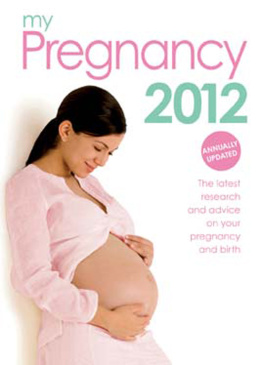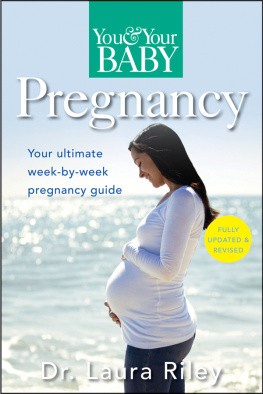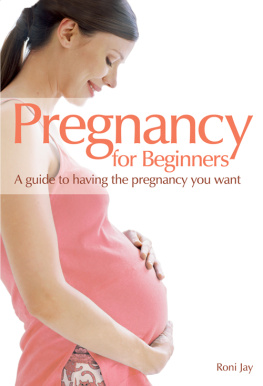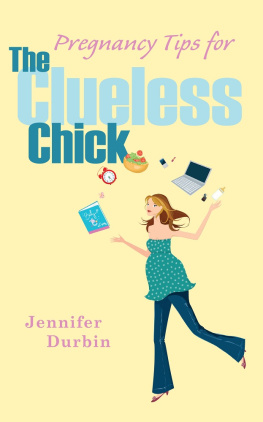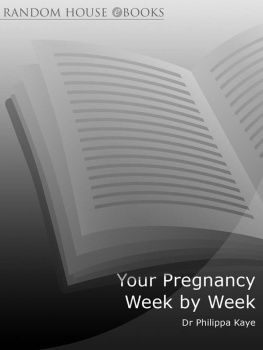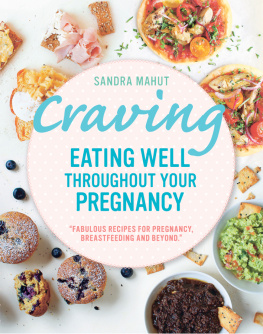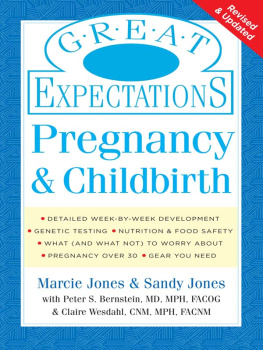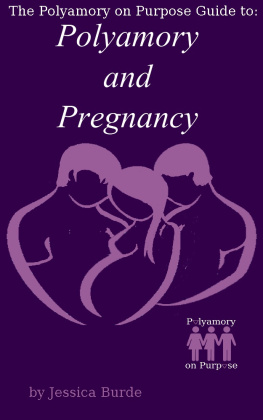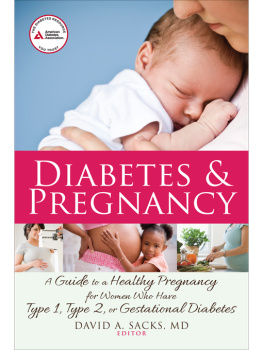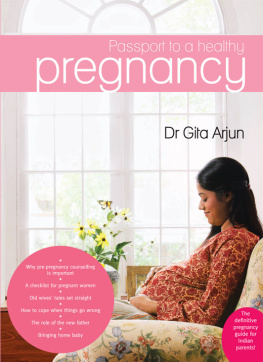My Pregnancy 2012

Important note
The information in this book is not intended as a substitute for medical advice. Neither the author nor White Ladder can accept any responsibility for any injuries, damages or losses suffered as a result of following the information herein.
My Pregnancy 2012
This second edition is published in 2011 by
Crimson Publishing, Westminster House, Kew Road, Richmond, Surrey TW9 2ND
Epub edition 2011 ISBN: 978 1 90828 122 7
The author has asserted [his/her] moral rights to be identified as the author of this work in accordance with the Copyrights, Designs and Patents Act 1988.
British Library cataloguing in Publication data
A catalogue record for this book is available from the British Library
All rights reserved under International and Pan-American Copyright Conventions. By payment of the required fees, you have been granted the non-exclusive, non-transferable right to access and read the text of this ebook on-screen. No part of this text may be reproduced, transmitted, downloaded, decompiled, reverse engineered, or stored in or introduced into any information storage and retrieval system, in any form or by any means whether electronic or mechanical, now known or hereinafter invented, without the express written permission of Crimson Publishing ebooks.
Epub file created by RefineCatch Ltd, Bungay
Contents
My Pregnancy 2012 is written by a team of experts, and is thoroughly updated every year. The team includes parenting journalist Kate Street, gynecologist and obstetrician Dr Joanna Girling and midwife Pippa Nightingale. Our experts share with you their own tips and advice in Words from the professionals which youll find throughout the book.
Thanks go to Jo Wiltshire, Hollie Smith and the new mums who share their pregnancy and birth stories with us so honestly and openly.
Congratulations, youre pregnant! Whether this was a well-planned occurrence or a happy surprise, this book will guide you through this exciting new chapter in your life.
In addition to the excitement, pregnancy can be daunting, frightening and often downright uncomfortable and sometimes you really dont know who to turn to for reassurance or information. This book aims to be your pregnancy big sister, dishing out friendly advice when you need it most.
We have the latest medical practices and policies delivered by two brilliant experts to help you feel informed when you discuss your pregnancy with your midwife or doctors. Weve also included lots of practical lifestyle advice from shopping to swimming; top tips from mothers on surviving pregnancy, birth and beyond; and what you can expect to feel physically and emotionally during the coming months. From birth plans to birth control and bumps to budgeting, we hope to keep you informed and amused during your 40 week journey. We wont blind you with medical science, preach at you about the odd sneaky glass of wine, or bore you with too many statistics: pregnancy should be fun and we hope to entertain you as well as inform you.
With all the latest up-to-date information on every aspect of your pregnancy from the practicalities and the big decisions, to the emotional rollercoaster and lifestyle changes youll face this book includes everything you need to guide you through your pregnancy.
Authors notes
Ive referred to baby as a boy throughout and to midwives as female and doctors as male. This is pure literary licence and I apologise to all baby girls, male midwives and female doctors for any sexism
1
Whether this is a planned pregnancy or a pleasant surprise, this chapter will help you deal with all the wild and wonderful thoughts that are rushing around in your mind. Well cover how to improve your chances of getting pregnant (if youre still planning), what to do when you find out you are pregnant, and what to do to prepare yourself for what happens next.
UNDERSTANDING CONCEPTION
If your knowledge of the science bit of conception was gleaned from a biology lesson in your first year of senior school, youll probably need a quick refresher on how the miracle of creating a new life actually happens.
For a pregnancy to take place, the egg has to be fertilised by a single sperm. A man can ejaculate as many as 300 million sperm but most simply fall out of the vagina or fail to swim up to meet the egg. Successful fertilisation usually takes place in the fallopian tube. The fertilised egg changes from being a single cell into a rapidly dividing group of cells called an embryo that travels down the tube to the uterus. When it gets there, it embeds itself firmly into the lining of the uterus a process called implantation and at that point the embryo starts the miraculous journey of becoming a baby.
PLANNING TO GET PREGNANT
Many sexually active women of child-bearing age spend a considerable amount of time and energy trying not to have a baby, so for some women it can be a surprise to discover that getting pregnant isnt as easy as they thought.
Cycles, tracking and planning
When they begin planning a baby, many women make a note of when their period is due and start tracking their cycle so they can work out when they are most likely to get pregnant. The average menstrual cycle is 28 days, although the length of a cycle can vary between 21 and 35 days. Ovulation when the egg is released from the ovary typically takes place 14 days before your period is due to start. For women who have regular periods then, it can be quite easy to pinpoint their most fertile period. However, rather than calculating dates rigorously, many couples choose to adopt a relaxed approach, and only after a year or so do they begin taking a more methodical approach.
If you do start tracking your cycle, it is worth bearing in mind that some women can detect ovulation through bodily changes, like vaginal secretions becoming clear and stretchy like raw egg white or by experiencing abdominal pain. There is also evidence that a womans waking temperature increases by at least 0.2C after ovulation, so it can be useful to keep a daily record of your temperature to track these changes. You can also buy a fertility prediction kit that tracks hormonal changes in your urine to highlight your most fertile days.
Research shows around 80% of couples in their twenties and early thirties conceive within a year of trying. This figure rises to 92% within two years. Fertility does decrease after the age of 35, although around 94% of women of that age will conceive within three years.
Actively trying to get pregnant
If youre actively trying to get pregnant you dont need to plan your sex life with military precision and take all the passion out of it. However, you are most likely to conceive if you have sex on alternate days around the time of ovulation, so some planning can be useful! Sperm can live for three to seven days in a womans body and the egg lives for 24 to 48 hours. It takes two days from ejaculation for a mans store of sperm to build.
You may have skipped this planning stage as recent research shows that around 40% of all pregnancies are unplanned.
START LOOKING AFTER YOURSELF
The most important thing to do if you are planning a pregnancy or have just found out you are pregnant is to eat a healthy, well balanced diet; stop or at least reduce smoking if you smoke (reducing the amount you smoke now will make it easier to give up when youre pregnant); avoid or reduce alcohol intake to no more than one or two units of alcohol once or twice a week; and take 400 micrograms of folic acid every day. This is a vitamin supplement which comes in a tablet that you can buy at all supermarkets and pharmacies. If you have any health conditions or are on any medications you should discuss them with your GP before you get pregnant or, if your pregnancy is unplanned, as soon as you find out you are pregnant.

